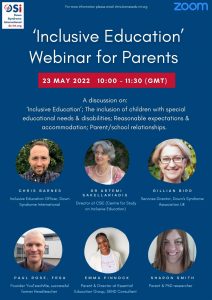Join the Deaf Child Worldwide ‘Introduction to Deafness’ training – for free!
This free online training course will be held from 21-23 June 2022.
It’s for those who work or are planning to work with deaf children in the Global South. Participants will learn more about the basics of deafness and the impact it can have on a child’s life.
The course is delivered in three sessions and is free, and there is a short application process as it is limited to NGO and charity staff only. This course is not suitable of professionals working with deaf children in the UK or other high-income countries. Please register for more details.

